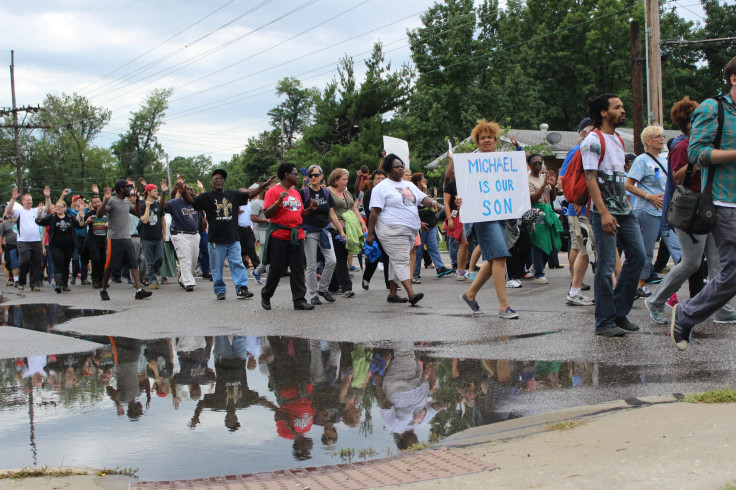Missouri Legislator Tries To Fight Racial Bias In Construction Trades With Anti-Union Bill

Missouri legislators are currently proposing three bills that include so-called right-to-work provisions. Long opposed by the labor movement and favored by business groups like the U.S. Chamber of Commerce, such laws prevent unions from assessing fees to nonmembers they are legally obligated to represent.
Republicans back two of the efforts.
The other bill has a far more unlikely origin: It is the brainchild of a black Democrat with a pro-labor voting record. Rep. Courtney Curtis, who represents a swath of suburban St. Louis that includes Ferguson, is proposing a more limited version of “right-to-work” that would apply only to the construction industry. He says his bill is a response to longtime, persistent discrimination by local building trades unions against minority workers and contractors.
Curtis tells International Business Times that he’s tried to get unions to address the issue, but to no avail. According to a 2011 report, white men comprised 81 percent of the St. Louis area construction force.
“For me, filing the bill is a line in the sand,” Curtis says. “It’s definitely creating some concern. … I’ve typically been a union supporter. But after Ferguson, I just don’t have the patience for things not progressing anymore.”
Curtis’ charge is not without precedent. In recent years, construction unions have also been accused of racial discrimination in Ohio and Pennsylvania.
In Missouri, Curtis points to a union-backed law in St. Louis County that requires bidders on contracts of $25,000 or more to maintain an apprenticeship program approved by the Department of Labor. Unions say the law is designed to improve working conditions. But Curtis says it serves to keep minorities out of the industry. He also criticizes construction unions for backing a similar proposal in the city of St. Louis, which has yet to become law.
Mark Esters, an organizer with Communications Workers of America Local 6355 and president of the St. Louis chapter of the Coalition of Black Trade Unionists, says Curtis’ approach is misguided.
“This would have an negative impact on all trade unionists, not just the building trades unions,” Esters says. “These are issues that can be addressed in another fashion, not by passing right-to-work.”
Esters says the CBTU is pushing for locals to diversify their apprenticeship programs by requiring that minorities make up 30 percent of participants. That has yet to happen. However, last October, amid continuing protests in Ferguson after the police killing of Michael Brown, St. Louis-area building trades unions kicked off a new pre-apprenticeship initiative aimed at increasing diversity in the workforce. The eight-week program is aimed at helping nonwhite workers land full-time union jobs in the industry.
Curtis says the measure amounts to little, since it’s not a fully fledged apprenticeship program, which would include on-the-job training and compensation. Jeff Aboussie, executive secretary-treasurer of the St. Louis Building and Trades Construction Council, says eight of the nine workers who completed the initiative last year are now employed with local unions.
He acknowledges, “for years, the building and construction trades have had a difficult time recruiting minorities,” but says the diversity program is evidence of recent improvement. He also says employers share the blame for the industry’s lack of minority workers. “It’s important to remember that unions don’t hire,” Aboussie says. “Contractors hire and contractors have to make the decision to hire minorities.”
By this point, Missouri unions and their allies are accustomed to fighting right-to-work. Last year, some Republicans joined up with Democrats to defeat such a proposal in the state House. That may get trickier in 2015 with expanded GOP majorities in the House and Senate. In any case, Democratic Gov. Jay Nixon has already promised to veto any right-to-work legislation, and observers say the Senate would likely sustain his veto.
Curtis is adamant his bill isn’t just a bargaining chip.
He says he wants it to pass. “A threat’s not a threat if you’re not serious about going all the way,” he says.
The House Committee on Labor and Industrial Relations is scheduled to consider each of the three bills on Monday afternoon.
© Copyright IBTimes 2024. All rights reserved.






















